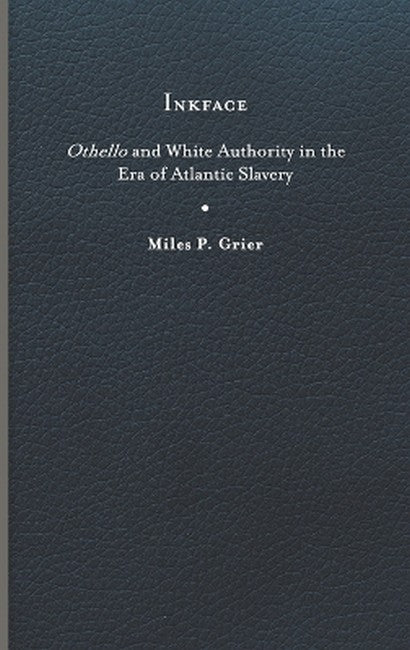Miles P. Grier is Associate Professor of English at Queens College, City University of New York.
Request Academic Copy
Please copy the ISBN for submitting review copy form
Description
Introduction: The Residue of Inkface 1. The Moor of Venice Reconstructed "O Bloody Period": Othello's Constitution and Significance "Letter and Affection," or Iago's Motive Reconsidered Interlude: Desdemona's Guilt, or "The Farce of Dead Alive" 2. "Be Thus When Thou Art Dead": Aphra Benh's Remediation of Othello 3. "Pale as thy Smock": Abigail Adams in Desdemona's Whites 4. The Cherokee Othello: Treating with 'The Base Indian' 5. Inkface to Chalkbones: The End of White Character Mastery in Melville's "BC" Epilogue: An Ultimate Reader
Inkface is poised to make significant contributions to the scholarly literatures on racialization in early modern British literary and performance culture and its legacies in North America. The critical, intellectual, and ideological aims of Inkface are ambitious, urgent, and generative. This book has changed so much of what I thought I knew about Othello--and all for the better! --Douglas A. Jones, Jr., Duke University Miles Grier's Inkface brilliantly traces the complex semiotic work performed by blackface in Shakespeare's Othello and its inky progeny on the page and stage across a longue duree, beginning with its inception in early seventeenth century England and then crossing the Atlantic to consider its textual and theatrical afterlives in eighteenth- and nineteenth-century America. The hermeneutics of inkface, Grier argues, far from simply grounding racialized character in an ostensibly indelible reality that renders blackness legible for white interpretive communities, loosens signifier from signified, revealing its saturation with unwieldy significations that become untethered from the "real" and thus open to resignification. --Natasha Korda, Wesleyan University, author of Labors Lost: Women's Work and the Early Modern English Stage

